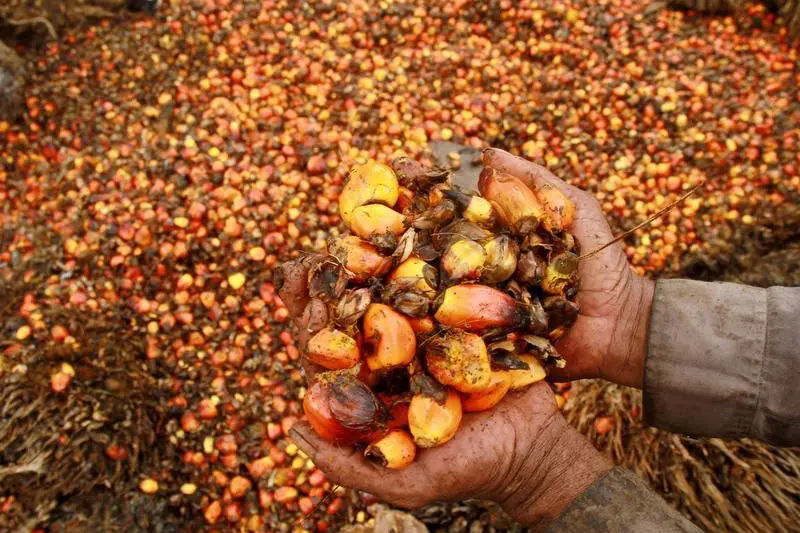PHOTO
Jakarta - Indonesia's 2022 palm oil exports are estimated at 34.67 million tonnes, down from last year's 37.78 million tonnes, partly due to a temporary export stoppage in April, the chief executive of its palm oil fund (BPDPKS) said on Thursday.
Indonesia's 2022 palm biodiesel consumption is seen at 10.6 million kilolitres, up from last year's 9.29 million kilolitres, Eddy Abdurrachman said at a media briefing.
The gradual easing of Indonesia's export restrictions, including the so-called domestic market obligation, would see shipments return to normal at around 36 million tonnes to 38 million tonnes in 2023, he said.
The world's top palm oil producer in late April imposed an export ban on crude palm oil and its refined products to try tame domestic cooking oil prices that were spiraling out of control, putting pressure on the government to act.
The ban, which followed several earlier intervention moves, rattled markets at a time when concern was growing about tightening global edible oil supply and the affects of war on sunflower oil shipments from the key exporting Black Sea region.
Indonesia removed the ban after three weeks in favour of a policy where producers were given an export quota based on their domestic sales volume, to ensure local supply.
On Wednesday, BPDPKS revised down its estimate of palm oil inventory next year as Indonesia's consumption of the vegetable oil is expected to increase amid a planned higher portion of palm oil in biodiesel next year.
Indonesia is implementing a 35% mix of palm oil in biodiesel from Jan. 1, up from 30% currently. Authorities were testing a palm oil mix of 40% in the fuel, known as B40, but Eddy said production capacity may not be sufficient.
"The road test (B40) results were good but there are a few other considerations ... With B40, biodiesel consumption volume could reach 15 million KL, while production capacity is at around 16 million KL," he said, adding it was too risky to have such a narrow gap.
Meanwhile, levy collection next year is expected at 30 trillion rupiah and biodiesel subsidy spending is seen at around the same amount. BPDPKS is in change of collecting palm oil export levies and distributing the proceeds to various programmes.
(Reporting by Bernadette Christina Munthe Additional reporting by Fransiska Nangoy; Editing by Martin Petty and Mark Potter)





















